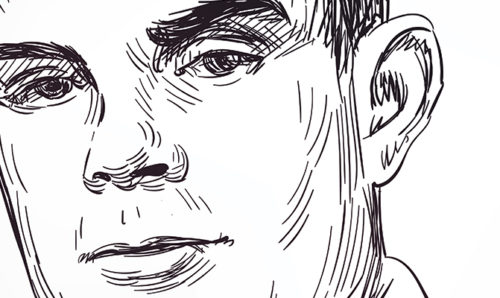Passing as human – What is the Turing Test?
Heritage Robotics and AI 23rd June 2022
This week marks 110 years since the birth of Alan Turing – mathematician, codebreaker, computer pioneer and, of course, University of Manchester heritage hero.
Here on The Hub we’re no stranger to the great man. We’ve discussed his remarkable (yet ultimately tragic) life with nephew Dermot Turing on The Buzz podcast; highlighted his philanthropy; unearthed little-known facts about his professional and private life; delved into his lost letters; and explained how he helped crack the Enigma code.
To acknowledge this would-be birthday, and to coincide with a time the University is powering up its focus on artificial intelligence (AI) and robotics – not least through the deployment of robots into dangerous environments, its hosting of the Advances in Data Science and AI Conference, and launch of the new Manchester Centre for Robotics and AI – we’re focusing on one of his most extraordinary and forward-thinking ideas.
So, what exactly is the Turing Test?
Put to the test
Today’s computers seem pretty smart. We can ask Alexa about the weather and have a (fairly) coherent interaction with a chatbot online.
But can a computer really talk like a human?
Recently, Professor Aline Miller answered whether we’ll always know the difference between AI and real people – a question we’ve been asking for a long time. Indeed, Turing raised it in his seminal 1950 paper Computer Machinery and Intelligence.
Wishing to answer the question ‘can machines think?’, Turing devised a hypothetical test to measure artificial intelligence. Originally named the Imitation Game – the same title, you might note, of the 2014 film about Turing’s life starring Manchester alumnus Benedict Cumberbatch – the method would become known as the Turing Test.
Our video explains how it works:
Back to the future
A fascinating system and, like many of Turing’s ideas, well ahead of its time.
Interestingly, Turing predicted that by the year 2000 computers with 100 megabytes of memory would be able to pass the test with ease. This didn’t come to pass – despite modern machines boasting far more memory than that.
In fact, only a few have been successful, and mostly through trickery.
Some of the more notable attempts include a program pretending to be a young boy for whom English wasn’t his first language, and another imitating a paranoid schizophrenic.
The Turing Test is by no means perfect, and doesn’t account for other wondrous advances in AI – for instance the rise of non-human intelligence, such as that seen in animal robotics.
But, an incredible, bold idea nonetheless.
And worthy of bearing, we’re sure you’d agree, the name of a truly remarkable man – born over a century ago but influencing us still.
If you enjoyed this post, be sure to subscribe on our homepage to keep up to date with the latest posts from The Hub.
Words: Joe Shervin
Video: Kory Stout, Enna Bartlett
Images: Shutterstock





Suat Baysan says
Thank you. Turing what a wonderful scientist.
Dr David Greenwood says
Very explicit
Anthony says
Feeling honoured (as current alumnus) to discover this link when googling my home address “6 Longton Avenue”.
Erin L. says
Thank you for your brief conclusion about Turing’s important contribution.
Desmond A.J. Flanagan says
What a disgrace that such a brilliant and patriotic man should have been hounded by the security services of this country -using his homosexuality as a spurious reason. Perhaps in the post-war period when H.M. Security Services were heavily infiltrated by foreign influences, it was desirable to get this genius – out of the way?
David BOTTOMLEY says
Thanks for the very interesting explanation
Kathleen Lindsay says
Clever things. But can thay write poetry?
Paul Rivett says
Interesting
Seamus McMillan says
There seems little doubt that computers/robots/androids will eventually be able to think as humans do, and indeed to experience emotions. That scenario may well be many decades, if not centuries, in the future but the limitations seem technical rather than logical. After all the human brain is basically a network, albeit incredibly complex, but we will eventually be able to understand and replicate its structure, as will androids.